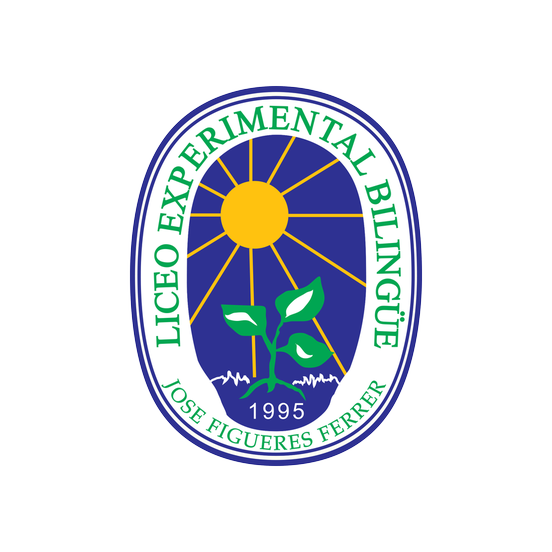The Experimental Bilingual Mode
In 1995 the specialists German Navarro Tossi and Carlos Masis Acosta, advisers to “Junta Administrativa del Hospicio de Huérfanos de Cartago”, elaborated the theoretical, pedagogical and philosophical proposal of this new educational modality. Once presented to the Higher Education Council, it approved it based on the recommendation of a commission formed for its analysis. This is how in March 1995 it was put it into practice for the first time and our institution was the first to develop and apply it. Later, the Ministry of Education expanded it, over the years, to form a group of seventeen educational centers under this curriculum plan.
The modality contemplates a framework of action within the philosophical and pedagogical principles of Constructivism, with the Humanist ingredient and the concepts of Rationalism, and on that foundation the pedagogical practice is developed.
In addition to this, tours, visits, talks, seminars, field works, plays, exchanges, art and culture exhibitions, concerts, conferences, practices, the incorporation of foreign teachers and others are always encouraged as a way of learning.
The institution has a video conference room to support this methodological and pedagogical vision.
Its experimental conception corresponds to the idea of making the curriculum more flexible in such a way that with the implementation it gets adapted according to the results, either incorporating new content or subjects or eliminating them from the study plan, either increasing the number of lessons or decreasing their quantity and adapting teaching practices.
Working with halves of groups in various subjects is incorporated into this approach in order to personalize teaching, especially in the area of English, to make the learning process more efficient.
Bilingualism as a need of the student population for their future professional training is a constant concern in this system; students develop language skills in the oral, written, and literature areas and students must be certified with an international test by the end of their eleventh year.
Strengthening the training of mathematical skills and knowledge of these contents receives special attention in our process, increasing and reinforcing their learning with the aim of preparing enough foundations so that our graduates can face their higher education with greater success.
The curriculum plan also includes training in the field of administration with the incorporation of the Business Management course which they must take in the first three years and complement it with Computing labs, which they receive in group halves. This knowledge reinforces them in tenth and eleventh year with Accounting and Tourism Technologies, as well as architectural drawings, all with the aim of guiding their vocational idea.
In the Exploratory Workshops, students begin to discover their motor skills and their vocational interests start to be outlined through the subjects Basic Electricity, Leather Work, Jewelry, Decorative Painting, Work with waste materials.







